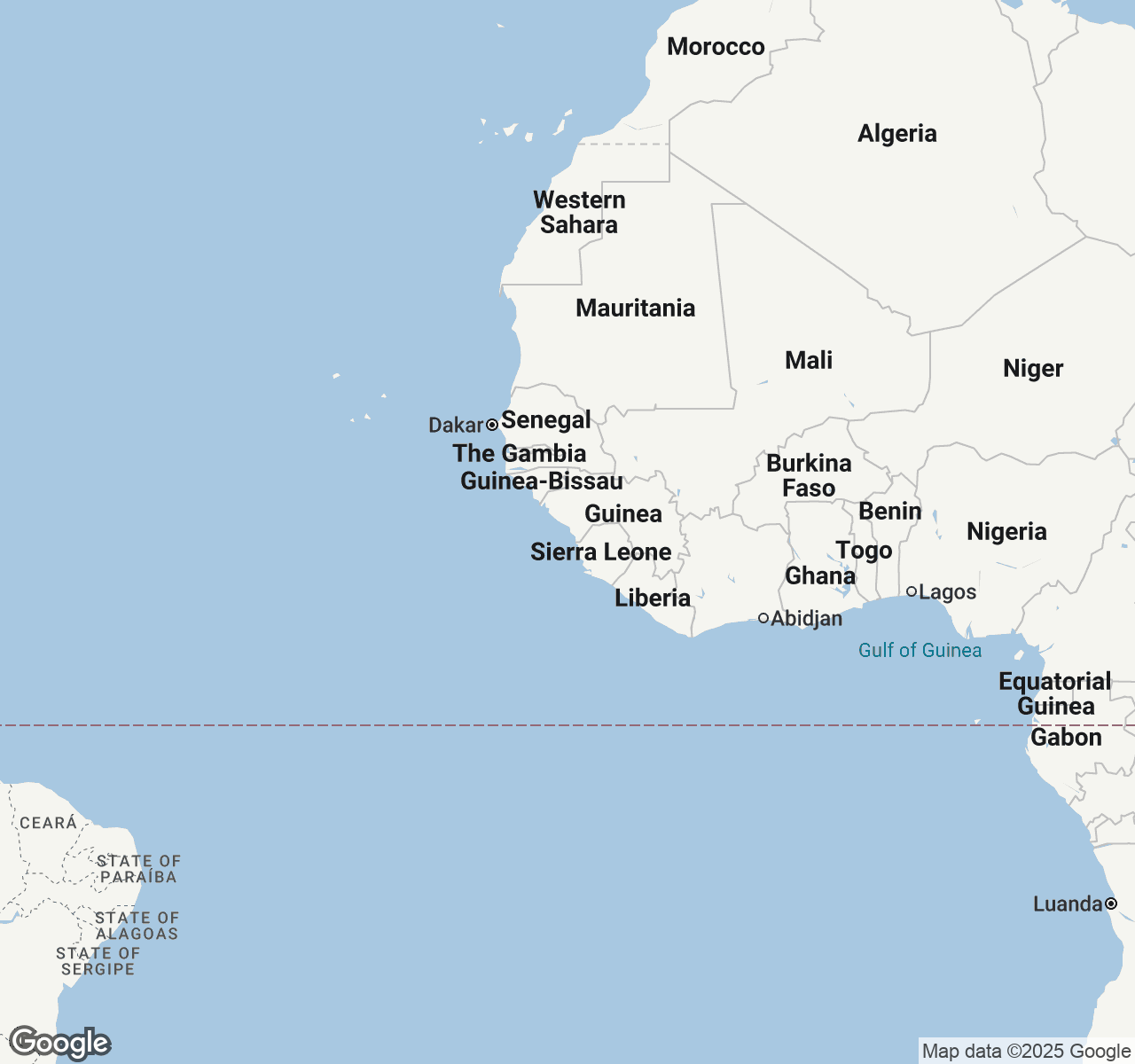
Things to Do in Conakry
Discover the best of Conakry
Plan Your Trip
Essential guides for timing and budgeting
Top Things to Do in Conakry
Discover the best activities and experiences. Book now with our trusted partners and enjoy hassle-free adventures.
Explore Conakry
Almamya
City
Botanical Garden Of Conakry
City
Boulbinet
City
Camayenne
City
Camayenne Mausoleum
City
Conakry Central Market
City
Conakry City Center
City
Conakry Port
City
Dixinn
City
Grand Mosque Of Conakry
City
Ile De Fotoba
City
Ile De Kassa
City
Ile De Roume
City
Iles De Los
City
Marche Madina
City
Matam
City
Matam District
City
Palais Du Peuple
City
Ratoma
City
Sandervalia
City
Sandervalia National Museum
City
Kaloum Peninsula
Region
Rogbane Beach
Beach
Taouyah Beach
Beach
Iles De Los
Island
Tombo Island
Island
Your Guide to Conakry
About Conakry
Conakry sprawls along Guinea's Atlantic coast, where fishing boats and cargo ships crowd the same harbor. The capital pulses with life. Markets overflow with spices and fabrics while djembe drums echo through streets lined with colonial buildings and new construction. The air smells like grilled fish and salt. You'll hear Fulani, Malinké, and Susu spoken everywhere. Vendors balance massive baskets on their heads, weaving through crowds with practiced ease—a daily performance repeated thousands of times. The people make the city work. They're warm and proud, holding tight to centuries-old traditions even as things change around them. The Grand Mosque dominates one part of town, Marché Madina another, both telling different pieces of Guinea's story. Need a break? The Îles de Los sit just offshore, offering clean beaches and crumbling colonial ruins—quiet enough to hear yourself think.
Travel Tips
Transportation: Use shared taxis for 2,000-5,000 Guinean francs ($0.22-$0.56) within the city—they follow set routes but can be crowded. Private taxis charge 15,000-30,000 francs ($1.67-$3.33) for cross-city trips. Avoid motorcycle taxis during heavy rains as roads flood easily.
Money: Exchange euros or US dollars at Ecobank or Vista Bank for rates around 9,000 francs per dollar. ATMs are limited and unreliable; bring cash. Budget 50,000-100,000 francs ($5.56-$11.11) daily for meals and local transport.
Cultural Respect: Greet with 'i ni ce' (good day) in Susu or 'bonjour' in French. Use your right hand for eating and greetings. Dress modestly when visiting mosques and traditional areas. Respect that Friday prayers affect business hours.
Food: Try thieboudienne (rice and fish) at local restaurants for 8,000-15,000 francs ($0.89-$1.67) per plate. Sample fresh mangoes and papayas from Madina Market for 2,000-4,000 francs ($0.22-$0.44) per piece. Drink bottled water costing 3,000-5,000 francs ($0.33-$0.56) and avoid ice.
When to Visit
Conakry's climate divides into distinct dry and wet seasons, each offering unique experiences. The ideal time is during the dry season (November-April), when temperatures range from 77-86°F (25-30°C) with minimal rainfall under 1 inch monthly. December through February offers the most comfortable weather with lower humidity and refreshing Harmattan winds from the Sahara, though dust can reduce visibility. This peak season sees hotel rates increase 40-60% and requires advance booking. The wet season (May-October) brings heavy rainfall averaging 12-20 inches monthly, with July-August receiving the most precipitation. Temperatures rise to 82-90°F (28-32°C) with high humidity, but dramatic thunderstorms and lush landscapes create spectacular scenery. Budget travelers benefit from 30-50% lower accommodation rates during this off-peak period. Key festivals include Independence Day (October 2nd) and Tabaski (dates vary annually based on Islamic calendar). Ramadan significantly affects dining and business hours. Serious rain from June-September can disrupt transportation, making the dry season preferable for first-time visitors. However, the wet season has authentic cultural immersion with fewer tourists and lively green landscapes that showcase Guinea's natural beauty at its most dramatic.

Conakry location map